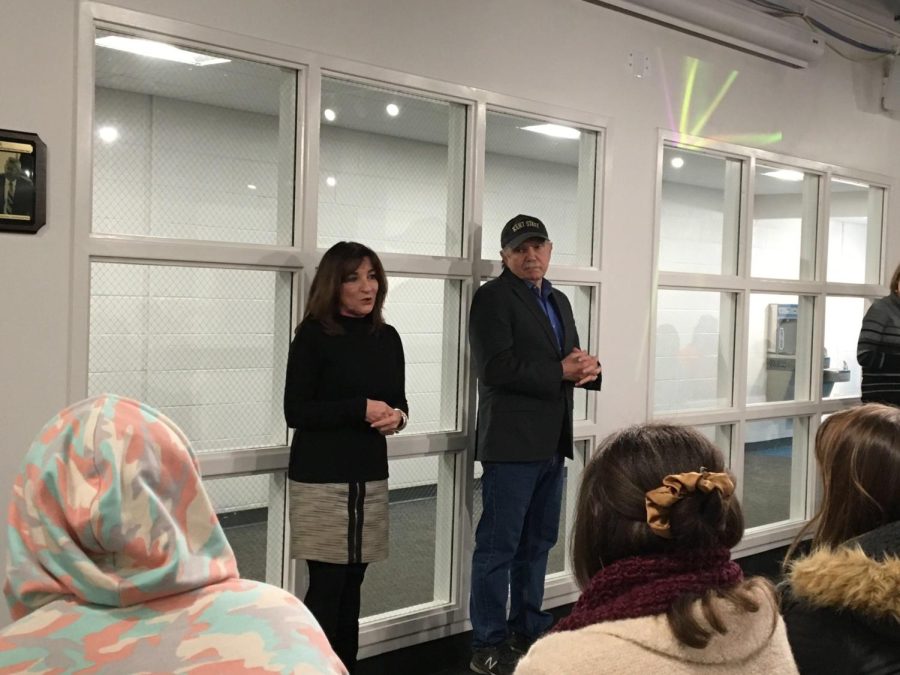May 4th witnesses discuss activism with Kent State students
Chic Canfora and Daniel Miller speak to students about activism in the May 4th Visitor Center on Wednesday.
Witnesses of May 4, 1970, when four Kent State students were shot and killed and nine others wounded, talked to students about the importance of being activists for what they believe in.
The May 4th Visitors Center hosted a special screening of the unreleased documentary, “Fire in the Heartland: Kent State, May 4th, and Student Protest in America” on Wednesday.
After the screening, Daniel Miller, the director of the film, and Chic Canfora, a witness of the May 4th incident, followed with a panel allowing students to ask questions.
The documentary follows student activism and its effects on the Kent State campus throughout the 1960s until May 4, 1970.
This special screening was to mark the 50th Anniversary of the ruling in the Supreme Court case, Tinker v. Des Moines, where students were given the right to freedom of speech in the classroom.
“Freedom of speech can never ever be seen as something that doesn’t have to be advocated for, fought for and used,” said Stephanie Smith, an assistant professor in the School of Journalism and Mass Communication.
Kent State students during the 1960s and on May 4, 1970, used their freedom of speech to show the world how they felt about the United States’ decisions when it came to the Vietnam War.
With the actions student activists were doing, they were often faced with consequences, such as being arrested or being kicked out of school.
“We were angry enough to stand up and risk something to make a very, very powerful statement,” Canfora said.
Miller explained that everyone who was a part of the documentary was “motivated by that experience to go on to become teachers, to become activists on behalf of children, on behalf of civil rights and human rights and to really be involved and spend their lives working on these kinds of issues.”
The two panelists told the students that due to May 4th, Kent State now has the reputation of being an activist university and they should take advantage of that.
“Kent State can model for other universities, where it needs to be active, aware, involved and safe, the place where it’s safe to do what we do,” Canfora said.
Having this reputation and this legacy, Canfora told students that they have the opportunity to be similar to what they were during the 1960s.
“You should make this campus what it should be: a place where the issues of the day are identified and you are taking a stand on it,” Canfora said.
Canfora continued to tell students different ways they could make a change for what they believe in, such as using social media as a platform and organizing student protests.
“Think about the power you have in numbers, you have to start somewhere and there is no place better than Kent State,” Canfora said.
Sara Crawford covers student politics. Contact her at [email protected].



